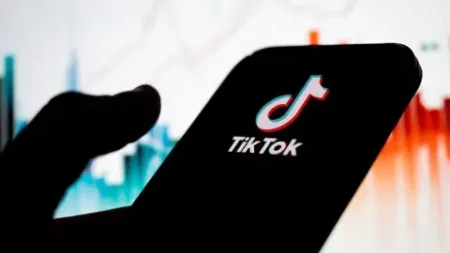Meta Platforms Inc., the parent company of Facebook, is taking legal action against Joy Timeline HK Limited, the Hong Kong-based developer of CrushAI, an application that generates explicit deepfakes. The lawsuit argues that the developers consistently manipulated the social media giant’s advertising regulations in order to promote their app, which allows users to create suggestive images using AI technologies. Meta, which has faced criticism for inadequate oversight regarding non-consensual explicit content, has characterized this legal move as part of a larger strategy to eliminate “nudifying” applications that exploit user images without consent.
The complaint, filed in the District Court of Hong Kong, reveals a startling statistic: since February, CrushAI had been responsible for the dissemination of more than 87,000 advertisements violating Meta’s guidelines. According to Meta’s allegations, the app developer orchestrated a complex network consisting of at least 170 business accounts on platforms like Facebook and Instagram, as well as over 55 active users managing in excess of 135 Facebook pages on which these problematic advertisements were displayed. The targeting of these ads focused predominantly on users located in the United States, Canada, Australia, Germany, and the United Kingdom.
The essence of the complaint underscores the breach of Meta’s Terms of Service, which clearly dictate that everyone creating an account on Facebook commits to adhering to the platform’s rules and regulations. Many of the advertisements included sexualized images purportedly generated by CrushAI, with provocative slogans such as “upload a photo to strip for a minute” and “erase any clothes on girls.” This blatant disregard for community guidelines prompted Meta to take action and seek recourse through the legal system.
The urgency surrounding this litigation stems from a growing societal concern regarding deepfakes and non-consensual explicit materials online. With artificial intelligence advancing rapidly, the ability to create and disseminate such content has significantly increased, complicating the landscape of digital consent. Recent AI-generated deepfake incidents have involved not only private individuals but also high-profile figures, including celebrities like Taylor Swift and political representatives such as Alexandria Ocasio-Cortez. In response to the mounting pressure, the U.S. government has enacted legislation, like the Take It Down Act, which criminalizes the sharing of non-consensual explicit content online and obligates tech platforms to swiftly remove such materials.
Despite the ban on nudifying apps, CrushAI’s advertisements continued to proliferate across Meta’s platforms. Investigative reporting by sources such as Faked Up and 404Media highlighted that a staggering 90% of CrushAI’s traffic originated from advertising on Meta platforms. Senator Dick Durbin, a vocal critic, subsequently reached out to Meta’s CEO Mark Zuckerberg, demanding explanations for the company’s apparent failure to curb the advertisement of these dangerous applications.
Reports revealing the extensive reach of nudifying apps on Meta’s platforms were further corroborated by CBS News, which documented numerous ads containing sexualized images, some depicting celebrities. In response, Meta claimed to have removed the ads and blocked associated URLs, but the effectiveness of its advertising review processes came under scrutiny as some ads openly advertised nudifying capabilities.
Meta’s legal action against Joy Timeline HK Limited not only seeks to halt these ad placements but also highlights a financial impact, estimating a loss of $289,000 linked to investigations and responses dealing with regulatory compliance. The social media platform has also touted the development of new technological solutions designed to identify such ads, even if they do not overtly feature nudity. By labeling this area as “adversarial,” Meta emphasizes that developers like those of CrushAI continue to adapt their methods to evade detection.
Moreover, the company is actively participating in data-sharing initiatives like the Lantern program, which is part of a collaborative effort with other major tech firms to combat child sexual exploitation and tackle the challenges posed by nudifying apps and deepfakes. This initiative underscores the urgency and seriousness of the ongoing dialogue around user safety and the ethical implications of technology in the evolving digital landscape.
Ultimately, the legal confrontation between Meta and CrushAI encapsulates not only the broader battle against non-consensual deepfake technologies but also highlights the responsibilities of tech companies to maintain safe environments for their users amidst rapidly evolving digital threats.











